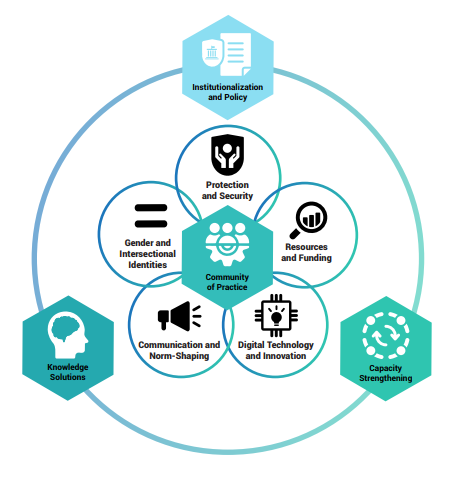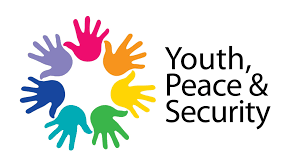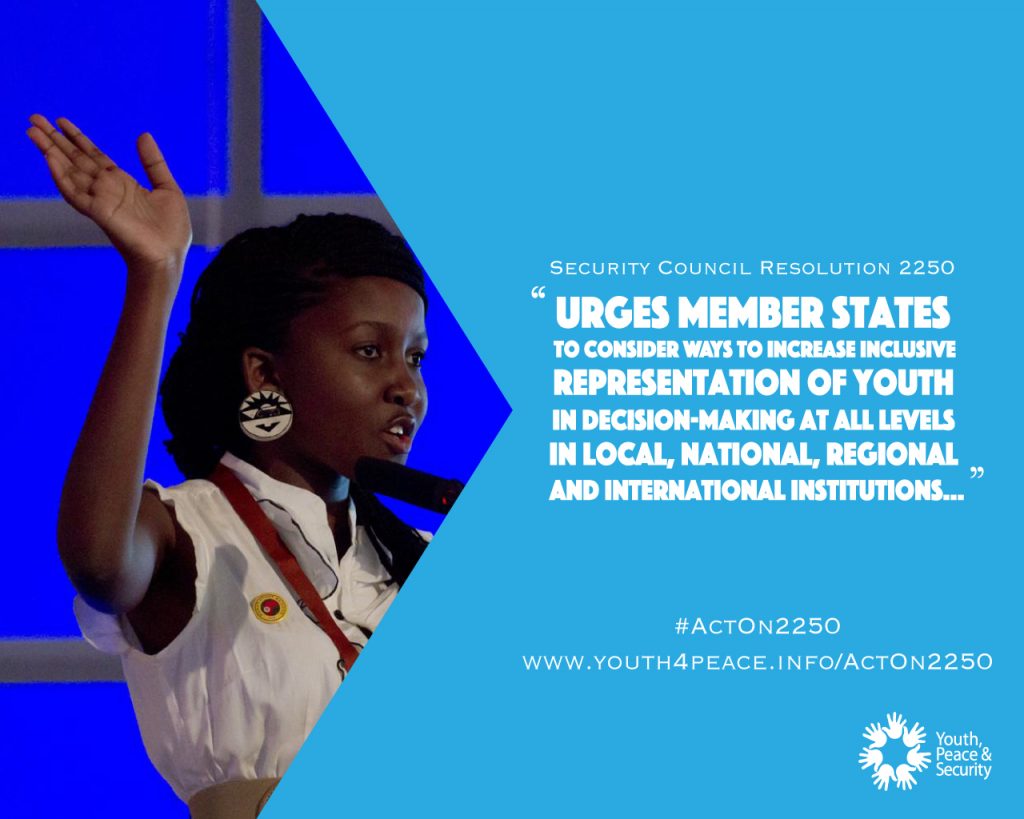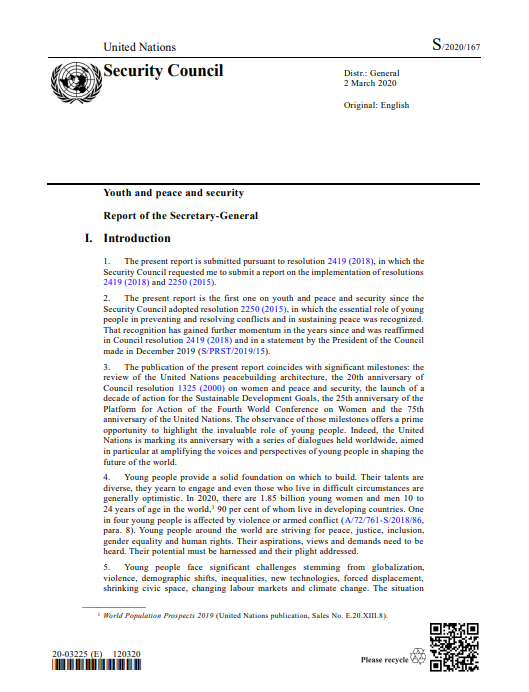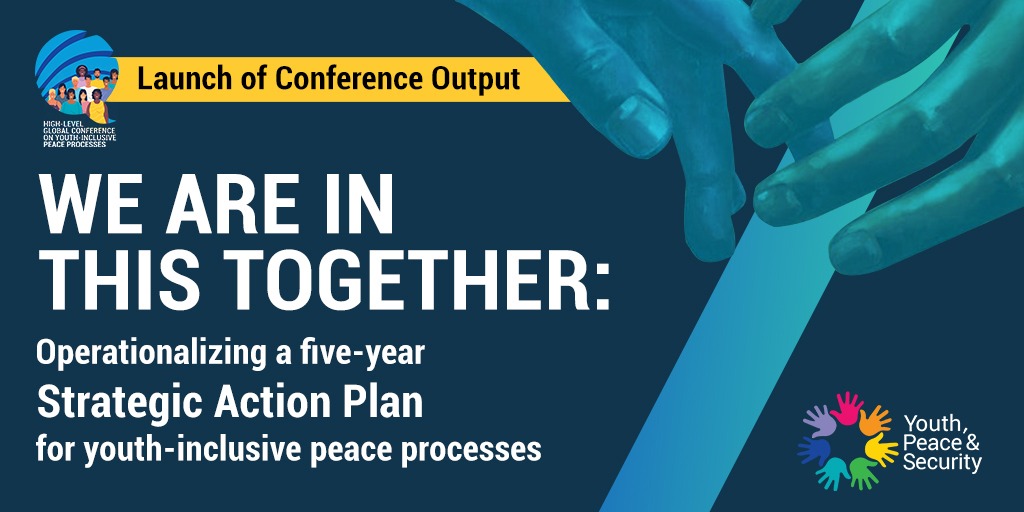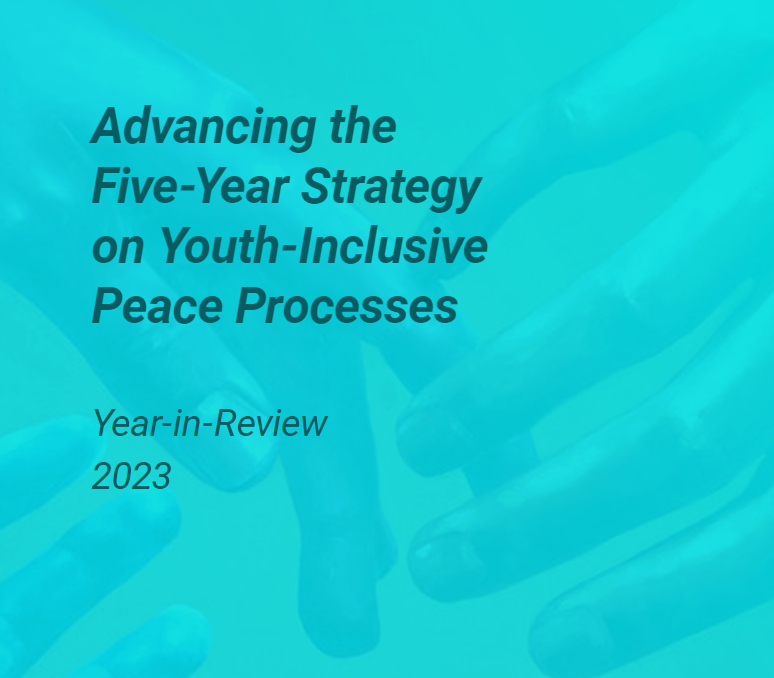Meaningful inclusion of young people is key to the commitment to “leave no one behind” which stands at the heart of the 2030 Agenda for Sustainable Development and its Sustainable Development Goals (SDGs). SDG 16 specifically highlights the fundamental role young people play in advancing peaceful, just and inclusive societies.
- Antonio Guterres, Secretary-General of the United Nations, A New Agenda For Peace
Key milestones on youth-inclusive peace processes
Why Youth?
Young people have created constructive and alternative channels for conflict resolution. Yet, despite their long-term mindsets on peace, and focus on just issues that underpin healthy, peaceful, and equitable societies, they are rarely engaged as key strategic partners in mediation processes. Recognizing that younger generations will ultimately inherit and face the lived realities, consequences, and implementation of peace agreements, it is crucial that they are also engaged as actors in peace processes. Diverse youth voices are key in raising the multifaceted and interconnected issues that need to be addressed to build sustainable peace.
Actors involved in peace processes must move beyond seeing youth as mere beneficiaries of these processes, but rather acknowledge them as necessary partners and co-leaders essential in conflict prevention, peacebuilding, and reconstruction of just and inclusive societies.
“Youth participation can increase the legitimacy and sustainability of peace processes. But to move from exclusion to meaningful inclusion, we must transform norms, practices, approaches and attitudes, and recognize young people as equal and powerful actors who can positively contribute to all steps and all aspects of peace processes.”
- Antonio Guterres, Secretary-General of the United Nations, Foreword of the “We Are Here” Report
Projects & Collaboration
‘We are in this together’: Operationalizing a five-year strategic action plan for youth-inclusive peace processes
The High-Level Global Conference on Youth-Inclusive Peace Processes in January 2022 led to the launch of the Five-Year Strategic Action Plan for Youth-Inclusive Peace Processes. The independent Strategic Action Plan was co-developed by the Office of the United Nations Secretary-general’s Envoy on Youth, the UN DPPA Mediation Support Unit and Search for Common Ground in collaboration with different stakeholders, including young peacebuilders, mediation support units of international, regional and sub-regional organizations as well as experienced peace process practitioners.
The document provides a framework for governments, non-state political actors, regional and international organizations, civil society, and young people to work together to move from youth-inclusive norms to youth-inclusive practices by 2026. It particularly calls on all institutions engaged in peace and mediation processes to design and implement peace processes that are youth-inclusive, respond to the needs and realities of young people, and are supported with relevant policy frameworks, organizational structures, and resources to sustain these efforts.
The strategic framework is built on four interconnected streams: Institutionalization and Policy, Capacity Strengthening, Knowledge Solutions as well as Community of Practice and Partnerships. In addition, the strategy seeks to mainstream key issues, such as protection, gender, resources, communication, and innovation across the strategy (see graph).
To guide the advancement of the Five-Year Strategy an International Steering Group (ISG) was created in February 2023. The ISG is co-chaired by the United Nations Youth Office (UNYO, previously OSGEY), DPPA and Search for Common Ground and serves as a platform for sharing best practices while supporting and guiding initiatives to implement the Five-Year Strategy. The ISG is composed of 23 members including youth organizations, civil society, representatives of regional and international organizations, UN entities, experts, and academia.
